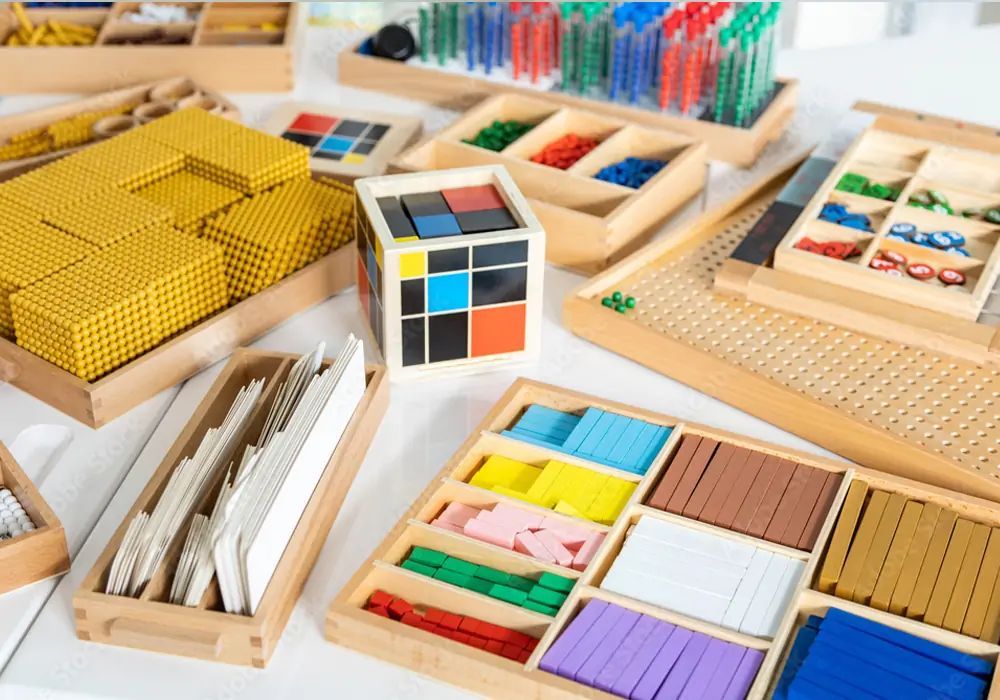
Why do Montessorians believe that all children should be allowed to work with real materials, real picture representations of animals, real glass, wood and metal utensils, instead of the ‘safe’ plastic substitutes?
It is because we strive for children to build their reality of life through real experiences. What could be better than exposing our children to what they will be surrounded by as they grow up? Have you ever thought about that if your child is allowed to handle real-life breakable materials, they will develop the skills needed for care and attention when handling materials? Natural consequences are inherent in a Montessori classroom when items break, and the materials are no longer available to work with. Children love their materials, and with only one-of-a-kind material available, they naturally develop concentration, patience, respect for materials, self-control and precision.
Naturally Sourced Materials Promote Sensorial Exploration
Dr. Maria Montessori emphasized the use of real materials in the classroom. Materials such as brass, wood, wicker, cotton, metal, and glass provide important information to the child. Some warm to the touch and cool with the air. Others are rough and dense. Some are heavy and some are light. Some are durable and some are fragile. These provide a multi-sensorial experience for the child.
The Natural World Is Important for Development
By utilizing materials that come from nature in your child’s belongings, it puts them closer in touch to the real world around them. By doing this, you are encouraging a connection to the earth and the environment.
Natural Materials Last
Plastics fade in color, and their quality is not normally the best. Natural toys made from wood or metal pass the test of time. They are durable, classic, and enduring. Many materials go years in the classroom before needing to be replaced. The child can work with the material with no fear of damage.
Natural is Better for the Environment
Taking care of the environment is at the core of Montessori philosophy. It’s a positive that our materials don’t sit in landfills for years on end. Instead they can be recycled, re-purposed, or they will biodegrade.
Natural Materials Are Beautiful
The prepared environment is an important concept of Montessori learning. Natural materials are beautiful and real, thus making them more attractive and appealing to the child.
They Inspire
Simple and natural materials create opportunities for open-ended work. This allows children to make their own discoveries, test hypotheses, and develop new skills, particularly when the child plays independently.
Interested in observing a Montessori classroom and seeing children work with natural materials? Schedule a tour today!
“The senses, being explorers of the world, open the way to knowledge.”


